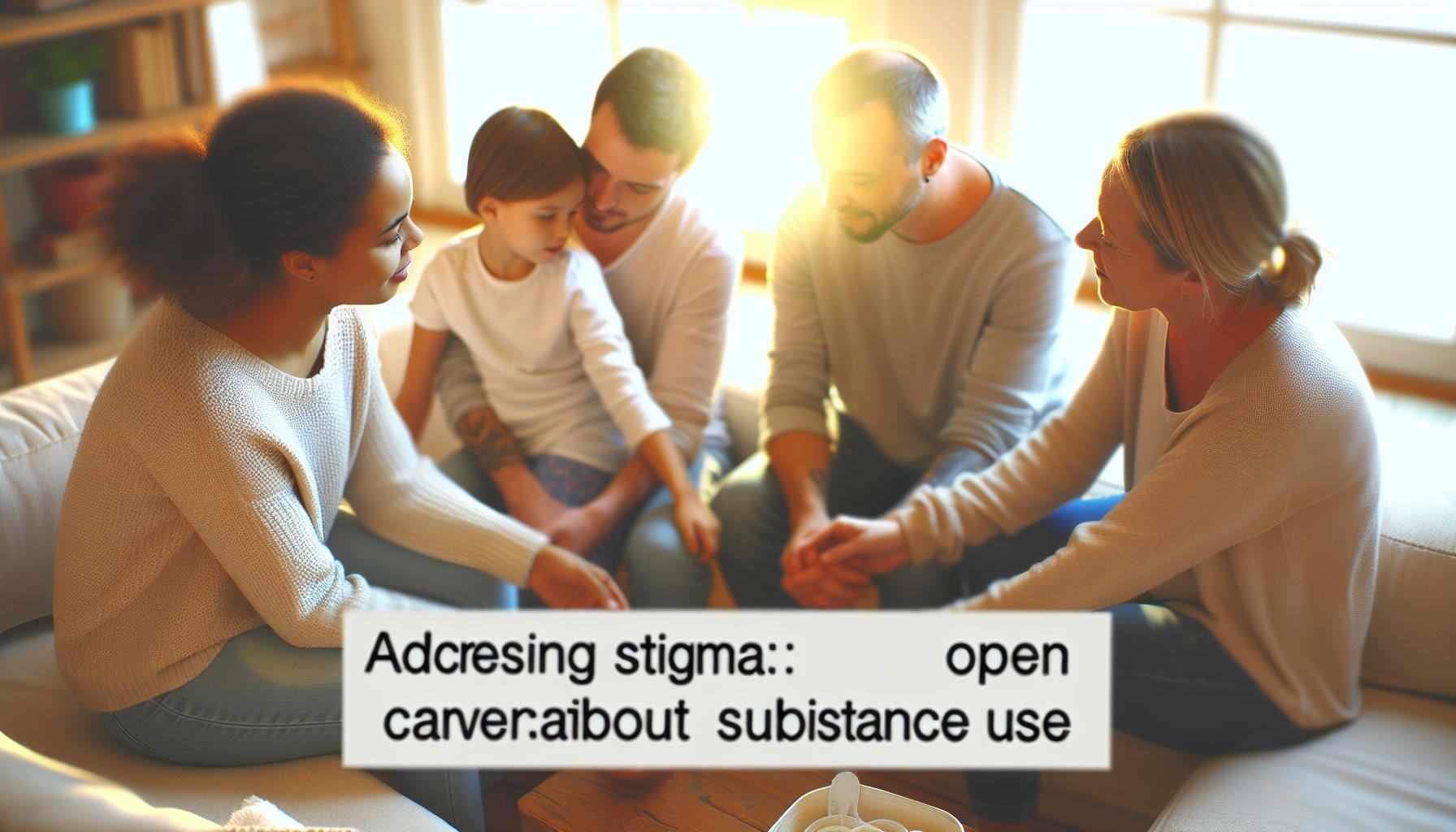Navigating motherhood is challenging enough without the added complexity of substance use. For new mothers grappling with cocaine use during breastfeeding, finding reliable facts and support can feel overwhelming. This article addresses critical questions about safety, health implications, and supportive resources, fostering honest discussions among those affected by these pressing issues.
Understanding the Impact of Cocaine on Breastfeeding: What You Need to Know
Did you know that cocaine can profoundly influence not just the user, but also their infant if they’re breastfeeding? Understanding the effects of this powerful stimulant on lactation is critical for new mothers. It’s essential to engage in open conversations about the realities of using cocaine while breastfeeding, as mothers face the risk of passing harmful substances to their babies through breast milk.
the Pharmacokinetics of Cocaine in Breast Milk
Cocaine’s presence in breast milk can vary significantly based on several factors,including the timing of use and the frequency of consumption. The substance rapidly crosses into breast milk, frequently enough reaching concentrations equivalent to or even higher than plasma levels. This means that the effects on the nursing infant can be serious and immediate.
- Half-life of cocaine: typically ranges from 1 to 2 hours in adults, but metabolites may remain in breast milk for longer.
- Timing of feeding: Breastfeeding immediately after cocaine use can result in higher exposure for the infant.
- Risks of contamination: Secondhand exposure during breastfeeding, such as through saliva or skin contact, can also pose risks.
health Risks for the Infant
The potential health risks for infants who are exposed to cocaine through breast milk can be alarming. Some of the immediate and long-term effects include:
| Risk | Details |
|---|---|
| Neurodevelopmental Issues | Infants may exhibit behavioral problems, cognitive delays, or a higher likelihood of developing substance use disorders later in life. |
| Feeding Difficulties | Exposure can lead to feeding challenges, including vomiting or poor weight gain due to toxicity. |
| Withdrawal Symptoms | Infants may experience withdrawal symptoms, including irritability and sleep disturbances. |
In addition to the direct effects of cocaine, the mother’s overall health and lifestyle choices play a crucial role in breastfeeding. Seeking support from healthcare professionals and participating in forums that encourage open discussion—like the cocaine and Breastfeeding Forum—can provide mothers with the resources they need to navigate this difficult situation.Sharing experiences and advice in such forums promotes a deeper understanding of the complexities involved, enabling better decisions for both mother and child.
Real Experiences: Parents Share Their Journeys
Glimpses into Real Journeys
Amid the complexities of motherhood, the topic of substance use during breastfeeding can frequently enough spark heated conversations, leaving parents feeling isolated. However, a Cocaine and Breastfeeding Forum has emerged as a safe space for candid discussions, where parents share their experiences, concerns, and strategies, providing comfort and camaraderie to those navigating similar challenges.
- Emma’s Story: Navigating Guilt and Anxiety
Emma, a first-time mother, found herself overwhelmed by the fear of judgment. After struggling with cocaine use, she sought community support while breastfeeding her newborn.”I learned that I wasn’t alone,” she shares. “The forum connected me with others who had similar experiences, and sharing my story helped lift the weight of guilt off my shoulders.”
- Mark’s Insight: The science Behind Choices
Mark, a father who faced a tough parenting decision, turned to the forum for evidence-based information. “I wanted to make informed choices regarding my partner’s cocaine use while breastfeeding. The forum provided scientific insights and personal anecdotes that made the process less daunting,” he explains. Mark stresses the importance of being open to learning and seeking guidance, highlighting that knowledge fosters healthier parenting.
- Lisa’s Approach: Finding Balance
Lisa successfully navigated her journey by establishing clear boundaries around substance use. She explains, “I set rules for myself that helped maintain balance.I engaged with the community often, participating in discussions every week to keep my experience current and find support. It turned out to be a valuable resource in my journey.”
common Themes and Takeaways
The stories shared in the Cocaine and breastfeeding Forum reveal common themes that many parents can relate to. Below is a summary of crucial insights:
| Common Concerns | Advice from Parents |
|---|---|
| Judgment from Others | Engage with supportive communities to cultivate understanding. |
| Knowledge Gaps | Research and rely on credible sources for informed decision-making. |
| Managing Emotions | Share your journey with others to alleviate feelings of isolation. |
Through these shared experiences, parents not only find solace in knowing they are not alone but also gain valuable guidance on navigating the difficult terrain of substance use and breastfeeding. The forum serves as a testament to the power of openness and the strength found in compassionate community support.
Expert Insights: what Healthcare Professionals Recommend
Understanding the Risks Associated with Cocaine Use While Breastfeeding
Cocaine use during breastfeeding raises significant concerns among healthcare professionals, emphasizing the profound impact substances can have on both mother and child. Evidence shows that cocaine can be detected in breast milk,posing serious risk to infants. Healthcare providers recommend that mothers who use cocaine either avoid breastfeeding or seek complete addiction treatment. The conversation surrounding this issue highlights the need for supportive resources that encourage mothers to make informed decisions, not only about their health but about the long-term well-being of their children.
Healthcare professionals Advise on Safe Practices
Experts in pediatric health advocate for mothers to engage in open discussions with healthcare providers about substance use and breastfeeding. Here are several recommendations from healthcare professionals:
- Consult with a Specialist: It’s crucial for mothers to talk to pediatricians or lactation consultants who understand the implications of substance use.
- Consider Alternatives: If a mother is struggling with cocaine addiction, healthcare professionals often suggest exploring option feeding options, including formula feeding during recovery.
- Prioritize Mental Health: Seeking support from mental health professionals can help mothers address underlying issues related to substance abuse.
- Education and Resources: Utilizing forums, such as the Cocaine and Breastfeeding forum, can provide mothers with necessary peer support and information.
Real-World Implications and Support Systems
Healthcare experts emphasize the importance of creating a supportive network for new mothers. Initiatives that offer addiction recovery programs specifically tailored for new parents play a vital role in promoting healthier mother-child relationships. As an example, recovery centers that include childcare services can significantly encourage mothers to pursue treatment while ensuring their children’s safety.
| Support Programs | Description | Benefits |
|---|---|---|
| Peer Support Groups | Meetings for mothers dealing with addiction | Emotional encouragement and shared experiences |
| Family Counseling | Therapy for families affected by substance use | Improved family dynamics and dialog |
| Educational Workshops | Classes on parenting and substance use | Informed decision-making and skill progress |
professionals in the healthcare field continuously advocate for open dialogues and access to resources, helping mothers navigate the complexities of substance use during breastfeeding. They stress that recovery is a journey that should be supported without stigma, paving the way for healthier futures for both mothers and their children.
Navigating the Challenges: Finding Support and Resources
Did you know that the emotional and physical stress associated with postpartum challenges can sometimes lead to substance misuse? Navigating these hurdles can be daunting, especially for new mothers dealing with the complexities of breastfeeding while addressing issues related to cocaine use. Finding the right support and resources is crucial for positive outcomes for both mother and child.
Understanding Your Options
It is indeed essential to know that you are not alone in this journey. Many mothers face similar challenges, and a range of resources is available to offer support. Here are some avenues you can explore:
- Online Communities: Forums like the “Cocaine and Breastfeeding Forum” provide a safe space for mothers to share their experiences, seek advice, and connect with others who understand their struggles. Engaging in these discussions can be a powerful step towards recovery.
- Professional counseling: Speaking with a licensed therapist who specializes in addiction and maternal health can provide personalized strategies to cope with the dual pressures of substance use and parenting.
- Support Groups: Local and virtual support groups (like Narcotics anonymous or Mothers Against Substance Abuse) offer a sense of community, where you can share your story and gain insights from others who have navigated similar paths.
- Pediatric Advice: Consulting with a pediatrician about safe breastfeeding practices can ease concerns regarding cocaine use and provide medical guidance tailored to your situation.
Resources to Consider
Accessing reliable information is an integral part of finding support.The following resources can assist you in gaining a deeper understanding of the implications of cocaine use during breastfeeding and help you make informed choices:
| Resource | description | Contact Information |
|---|---|---|
| Substance Abuse and Mental Health Services Administration (SAMHSA) | Offers a national helpline and treatment locator for substance use disorders. | 1-800-662-HELP |
| La Leche League International | A global organization providing breastfeeding support and education. | www.llli.org |
| Postpartum Support International (PSI) | Provides resources and support for mothers dealing with postpartum depression and anxiety. | 1-800-944-4773 |
| National Institute on drug Abuse (NIDA) | research-based information on the effects of drugs, including cocaine. | www.drugabuse.gov |
By actively seeking out these resources and engaging in open discussions on platforms such as the “Cocaine and Breastfeeding Forum,” new mothers can forge a path toward healing. Remember that support is available,and taking the first step can lead to a brighter future for both you and your baby.
Addressing stigma: Open Conversations About Substance Use
the stigma surrounding substance use, particularly in sensitive contexts like breastfeeding, can lead to significant harm—not just to individuals, but also to families and communities. many parents grappling with substance use disorder feel isolated and judged, frequently enough fearing that seeking help or sharing their experiences will attract condemnation rather than support. This silence perpetuates harmful cycles and leaves many without the reassurance they desperately need.
The Importance of Open Dialogues
Engaging in open conversations about substance use—especially concerning issues like cocaine use and breastfeeding—can be a transformative step towards destigmatizing these topics. Forums and community discussions, like the one initiated in the Cocaine and Breastfeeding Forum: Honest Discussions and Advice, provide safe spaces for individuals to share their experiences, ask tough questions, and seek advice from those who understand similar struggles. When we foster an habitat where candid dialogue is encouraged, we dismantle the walls of judgment and replace them with understanding and compassion.
Consider the following benefits of transparent conversations:
- Increased Awareness: Sharing stories educates others about the complexities of substance use and the realities faced by individuals trying to navigate parenting.
- Access to Resources: Open discussions can guide parents to available support networks, counseling services, and healthcare professionals who are trained to handle these sensitive issues.
- Empowerment: Hearing others’ experiences can empower individuals to seek help and take proactive steps towards recovery without fear of stigma.
- Normalizing Conversations: Regular discussions about substance use can help normalize these topics, making it easier for parents to come forward and share their struggles.
Creating Safe Spaces for Discussion
Creating a safe space for discourse not only helps those facing substance use challenges but also fosters empathy among non-users.These environments should be built on principles of respect,confidentiality,and understanding.For example, peer-led support groups, online forums, and community workshops can serve as invaluable resources for parents.
| What Makes a safe Space? | Key Characteristics |
|---|---|
| Confidentiality | All participants agree to keep discussions private and respectful. |
| Non-judgmental Attitude | The space encourages open sharing without fear of criticism. |
| Support Resources | Access to information on professional help and recovery programs. |
| Community Building | Facilitating connections among participants to foster relationships and support. |
By actively participating in forums like the Cocaine and Breastfeeding Forum: Honest Discussions and Advice, individuals can engage in meaningful discussions that help alleviate stigma. Addressing substance use openly leads not only to personal healing but also inspires broader societal change—encouraging communities to foster environments where empathy and support flourish.
Harm Reduction Strategies: Keeping Your Baby Safe
Understanding how substances like cocaine interact with breastfeeding can feel daunting, but it’s crucial for ensuring your baby’s safety. Many parents seek information not just to reassure themselves, but to find practical ways to mitigate risks. Engaging in harm reduction strategies can make a significant difference in this journey. These strategies focus on minimizing the potential negative consequences while allowing for informed decisions.
Establishing a Safe Environment
Creating a nurturing space for your baby is paramount.Here are some strategies to consider:
- Limit Exposure: If you are using cocaine or any substances, try to limit your baby’s exposure to your habits. This might mean avoiding direct contact after use.
- Timing Matters: Consider the timing of breastfeeding in relation to your substance use. Such as, if you use cocaine, ensure that several hours have passed before nursing.
- Safe Storage: Store cocaine and any paraphernalia securely and away from your child’s reach, just as you would with any hazardous substance.
Communicate Openly
Communication is key in harm reduction. Discuss your concerns and circumstances openly with healthcare professionals. They can provide resources and support tailored to your situation.Being transparent about your substance use during consultations can help ensure you receive the best advice regarding the health of both you and your baby.
support Networks
Participating in support groups can be invaluable. Engaging with communities, such as a Cocaine and Breastfeeding Forum, allows you to share experiences and gain insights from others who understand your challenges. Here are some dynamics to consider:
- Peer Advice: Learn from others who have navigated similar issues; they can provide real-world strategies that worked for them.
- Emotional Support: Connecting with those who share your experiences can reduce feelings of isolation and shame.
- Access Resources: Gain information about local services or programs aimed at substance use recovery while parenting.
Monitoring Your Baby’s Health
Keeping an eye on your baby’s development is key. Regular check-ups with a pediatrician are essential, especially if you are concerned about the impacts of substance use. Discuss any unusual behaviors, feeding issues, or health concerns with your healthcare provider promptly. Here’s a basic checklist for monitoring:
| Signs to Watch For | Action to Take |
|---|---|
| Unusual lethargy | contact pediatrician immediately |
| Poor feeding patterns | Consult with a lactation specialist |
| Irritability | Observe and discuss with your healthcare provider |
By implementing these harm reduction strategies, you can work towards nurturing a safe environment for your child while navigating the complexities of cocaine use and breastfeeding. Awareness,communication,and support are your most powerful tools in this journey.
Empowering Choices: Balancing Health and Parenthood
It’s an undeniable reality that parenthood comes with a multitude of decisions, particularly concerning health and wellness. When a new mother grapples with substance use—such as the use of cocaine—it becomes paramount to delicately balance personal health needs with the wellbeing of her child. Engaging in open conversations about such sensitive topics is essential, and forums on issues like cocaine and breastfeeding provide a crucial platform for support and information.
Recognizing the Stakes
The decision to use cocaine while breastfeeding has profound implications, both physically for the mother and developmentally for the child. Understanding the potential effects on an infant, such as irritability, feeding difficulties, or developmental delays, is vital.It is indeed imperative for parents to be informed not only about the substance’s impact but also about safe practices and alternatives that prioritize a child’s health:
- Consult Healthcare Providers: Before making any decisions about substance use, consulting with healthcare professionals can provide tailored advice.
- Consider Alternatives: If struggling with substance use, exploring programs that support recovery can provide valuable assistance while promoting maternal health.
- Join Support Forums: Engaging in supportive communities—like those discussing cocaine use and breastfeeding—can facilitate understanding and communal healing.
Practical Steps for Mothers
Navigating the complexities of parenthood, especially when substance use is a factor, requires honest self-reflection and support. Mothers may take the following actionable steps to empower themselves and foster a healthier environment for their children:
| Action Step | Description |
|---|---|
| Seek Counseling | Engage with professionals who can assist in acknowledging dependencies and developing a recovery strategy without stigma. |
| educate Yourself | access reliable medical sources to understand how substances affect breastfeeding and child development. |
| Communicate Openly | Talk to family or trusted friends about your struggles to build a support system that encourages healthy decision-making. |
| Utilize Resources | Explore local or online support groups that address cocaine use or parenting challenges, which can alleviate feelings of isolation. |
These discussions surrounding cocaine use while breastfeeding emphasize the importance of choice—mothers have the right to seek help,understand potential risks,and make informed decisions. Through community dialogues, knowledge sharing, and professional guidance, parents can strive to create a balance that supports both their health and the wellbeing of their children.
Resources for Ongoing Support: where to turn for Help
In times of uncertainty, especially when navigating the complexities of breastfeeding while struggling with substance use, having access to the right resources can make all the difference. The Cocaine and Breastfeeding Forum serves as a valuable starting point for open,honest discussions,but it’s essential to recognize that ongoing support is crucial for recovery and parenting success.Here’s a look at where you can turn for help.
Online Communities and Support Groups
Connecting with others who have similar experiences can provide the emotional and practical support needed during recovery.Numerous online forums and support groups cater to individuals dealing with substance use issues while navigating parenting challenges.
- SMART Recovery: Focused on helping individuals overcome addiction through self-empowerment, this group offers online meetings and resources tailored for families.
- Alcoholics Anonymous (AA) and Narcotics Anonymous (NA): These well-established organizations have online and in-person meetings that address a variety of substance use disorders, offering a community of support.
- cocaine Anonymous: Similar to AA, this group focuses specifically on cocaine-related issues and stresses the importance of shared experiences in recovery.
- La Leche League: While primarily focused on breastfeeding, this group provides a supportive environment for mothers facing various challenges, including addiction.
Professional Counseling Services
engaging with professionals who specialize in addiction recovery can provide individualized support and advice, making it easier to balance motherhood with sobriety.
| Type of Service | Description | Contact Information |
|---|---|---|
| Substance Abuse Counselors | Trained professionals offering tailored support in overcoming addiction and understanding its impact on family life. | Find local services through SAMHSA’s Finder. |
| Therapists Specializing in Family Issues | Therapists focusing on the challenges faced by families dealing with substance use, providing coping strategies and support. | Consult Psychology Today for listings. |
| Support Hotlines | 24/7 helplines dedicated to providing immediate support and resources for mothers facing addiction. | Contact the National Helpline at 1-800-662-HELP (4357). |
educational Resources
Staying informed is another vital aspect of the recovery journey. Accessing high-quality information on both substance use and breastfeeding can empower mothers to make informed choices.
- Women for Sobriety (WFS): Offers educational resources specifically designed for women in recovery, focusing on self-esteem and personal empowerment.
- Substance Abuse and Mental Health Services Administration (SAMHSA): Provides a wealth of information on addiction and recovery resources, including prevention and treatment options.
- Lactation consultants: Professionals can provide guidance on breastfeeding challenges, especially for mothers in recovery who may need specific advice.
Incorporating these resources into your life can create a supportive network that fosters lasting recovery while promoting a healthy breastfeeding experience. Remember, seeking help is a sign of strength, and numerous avenues are available to ensure you’re not alone in this journey.
FAQ
What is the Cocaine and Breastfeeding forum: Honest Discussions and Advice?
The Cocaine and Breastfeeding forum: Honest Discussions and Advice provides a safe space for parents to discuss the impacts of cocaine use during breastfeeding.It aims to share experiences, educate, and provide supportive advice to those navigating this challenging issue.
This forum recognizes the complexities of *substance use and parenting* while prioritizing the health of both mothers and their babies. Users can access shared stories and expert opinions that help foster understanding, empathy, and practical solutions based on trusted research.
Can I breastfeed if I have used cocaine?
While breastfeeders are encouraged to avoid cocaine, the timing of use can impact the safety of breastfeeding.It’s essential to be informed about the effects of cocaine and make decisions that prioritize your baby’s well-being.
If cocaine is used, waiting at least 24 hours can help minimize risks. Engaging with support from the Cocaine and Breastfeeding Forum can offer shared experiences and guidance, helping you connect with others facing similar dilemmas.
Why does cocaine pose risks during breastfeeding?
Cocaine can be harmful if passed through breast milk, affecting a child’s development and health. The substance can potentially lead to *irritability and feeding difficulties* in infants.
Understanding these risks is crucial for any breastfeeding parent. Resources like the Cocaine and Breastfeeding Forum provide vital information and experiences that guide safe practices in parenting.
How can I find support for cocaine use while breastfeeding?
Support can be found through community forums, counseling services, and local support groups. The Cocaine and Breastfeeding Forum is an crucial resource where individuals share honest discussions and advice.
Connecting with others who have faced similar challenges can offer emotional support and practical strategies. Seeking professional help can also provide personalized guidance to navigate these situations effectively.
What strategies can definitely help reduce cocaine use while breastfeeding?
Strategies to reduce cocaine use may include *mindfulness techniques*, counseling, and finding healthy alternatives to cope with stress. Many find support from dedicated forums invaluable.
The Cocaine and Breastfeeding Forum can provide insight and community-driven approaches that promote healthier choices, encouraging breastfeeding mothers to prioritize both their health and their children’s.
Can cocaine use affect my breast milk supply?
Cocaine use can negatively affect lactation and may lead to a decrease in breast milk supply. This can impact your baby’s nutrition and overall growth.
Being part of supportive spaces like the Cocaine and Breastfeeding Forum allows mothers to discuss their challenges and seek strategies that ensure both a stable milk supply and healthy breastfeeding practices.
how can I discuss my concerns about cocaine use with my healthcare provider?
Approaching your healthcare provider about cocaine use can seem daunting, but it’s essential for your baby’s health. Open, honest conversations can lead to effective support and treatment options.
When discussing your situation, focus on your *concerns regarding breastfeeding and the health of your child*. Your provider may also direct you to resources such as the Cocaine and Breastfeeding forum for community support and additional information.
In summary
As we conclude our exploration of the “Cocaine and Breastfeeding Forum,” it’s crucial to recognize the complex emotions and challenges faced by parents navigating this sensitive topic. Open, honest discussions can empower us to make informed decisions that prioritize both the health of our little ones and our own wellbeing. Remember,you’re not alone—connecting with a supportive community where experiences and advice can be shared is invaluable.
We encourage you to engage further with the resources available, weather it’s reaching out to healthcare professionals or joining supportive forums where you can share your journey and hear from others who have walked similar paths. Every step taken towards understanding the implications of substance use on breastfeeding is a step towards nurturing a healthier bond with your child. Keep exploring, asking questions, and supporting each other as we strive for a positive parenting experience together. Your commitment to this journey is commendable,and we are here to support you every step of the way.






